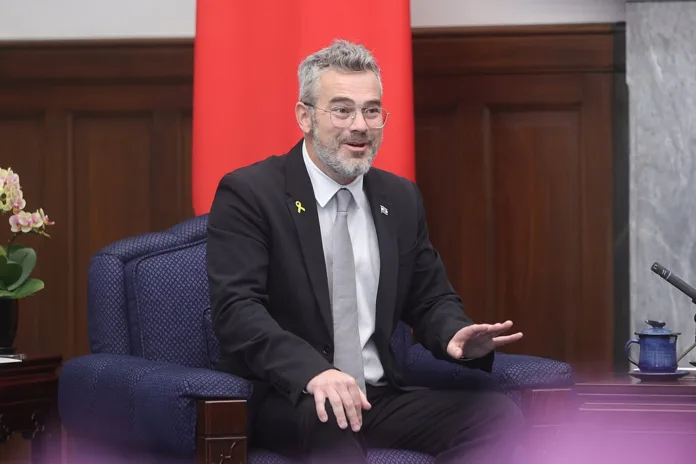Beijing brands Toporovsky a “trouble-maker” after leading knesset delegation to Taiwan
China has unleashed a stark warning against Israeli lawmaker Boaz Toporovsky, declaring he will “fall and be shattered to pieces” after leading a parliamentary delegation to Taiwan last week.
The Chinese Embassy in Israel issued its statement on Sunday evening, accusing Toporovsky of repeatedly breaching Israel’s one-China policy. The embassy branded him a “trouble-maker” in bilateral relations and warned that he should “not delude himself that he can harm China’s core interests without paying a price.”
Toporovsky, from the centrist Yesh Atid party, chairs the Israel–Taiwan Parliamentary Friendship Group. He travelled to Taipei alongside fellow MKs Michal Shir-Segman, Debbie Biton, Eli Dallal, Yael Ron Ben-Moshe, and Shalom Danino. The delegation met Taiwan’s president, Lai Ching-te, on 16 September, presenting a joint declaration signed by 72 Knesset members in support of Taiwan’s integration into international forums.
Taiwan’s Presidential Office highlighted that the declaration represented a majority of the Israeli parliament. Officials in Taipei also noted that the Israeli lawmakers thanked Taiwan for aid sent to Israeli communities and praised its technological and resilience expertise.
Embed from Getty ImagesThe embassy’s furious reaction underscored Beijing’s insistence on its “one China” stance, which rejects Taiwan’s participation in international bodies. China cited the 1992 joint communiqué with Israel, which confirmed Israel’s recognition of the People’s Republic of China as the sole legal government and described Taiwan as “an inalienable part” of China.
Despite this official recognition, Israeli lawmakers have continued to engage with Taiwan through parliamentary friendship groups and occasional visits. Toporovsky has been a central figure in these efforts. In July, more than 70 MKs endorsed his initiative with Ohad Tal to back Taiwan’s participation in global institutions.
The Chinese embassy statement marked the harshest language directed at an Israeli politician in recent years. “If he does not rein in at the brink of the precipice, he will fall and be shattered to pieces,” it read. Beijing framed Toporovsky’s meetings in Taipei as undermining the political foundation of China–Israel relations.
While the embassy did not refer to any shift in official Israeli government policy, its sharp rhetoric was clearly aimed at deterring further parliamentary overtures to Taipei. So far, Jerusalem has not announced any change to its stance on the one-China principle.
For China, Taiwan remains a red-line issue, and Beijing has consistently pressured countries that attempt to elevate ties with Taipei. The embassy’s remarks fit that pattern, issuing an unmistakable threat at a time of heightened global tensions over Taiwan’s status.
Toporovsky, for his part, has portrayed the initiative as a demonstration of solidarity. His delegation’s declaration pointed to Taiwan’s longstanding support for Israel since the Hamas attacks of 7 October 2023 and argued that Taipei’s global expertise in areas such as technology and disaster resilience could benefit international institutions.
The escalation highlights the delicate balancing act Israel faces in managing relations with both Beijing and Taipei. Israel has no formal diplomatic ties with Taiwan, but parliamentary exchanges have persisted. Now, China’s unusually severe warning signals that such gestures are becoming increasingly intolerable in Beijing’s eyes.
As of Monday, the Israeli government had not responded to the embassy’s threats, and there was no indication that it planned to rein in the parliamentary friendship group. For Toporovsky, however, Beijing’s warning marks an unprecedented personal attack from one of the world’s most powerful states, casting a shadow over future Israel–Taiwan engagement.
